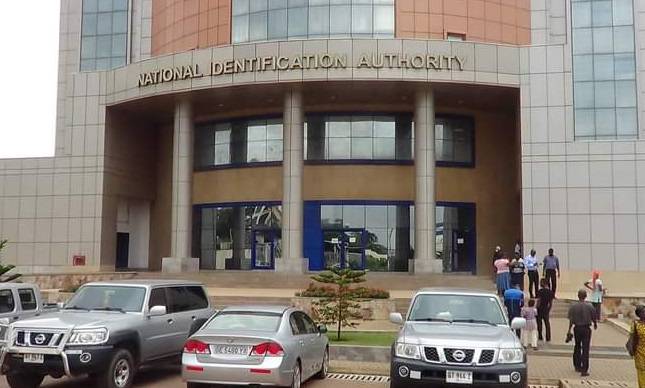🔥“I Didn’t Think A Strike Could Hurt This Much… Until My ID Didn’t Work”
(Why the NIA Strike Left More Than Just Workers Hanging—and What the Labour Commission Just Did About It)
-I remember the exact moment it hit me. I was standing in line at the bank, sweaty and impatient, clutching my Ghana Card like it was a golden ticket. My turn finally came, and the teller asked for ID verification.
But the system was down. Again.
“We’re not able to verify your Ghana Card at the moment,” she said, barely looking up.
I laughed at first. A tired, ironic laugh—because of course it wasn’t working. It hadn’t been for days. Weeks, even.
What I didn’t realize until later was that this wasn’t just some random technical glitch. It was the fallout of something bigger—the National Identification Authority (NIA) strike. And now, as of this week, the Labour Commission has stepped in and ordered the NIA Divisional Union to call off what they’re calling an “unlawful strike.”
But let me back up a bit, because this isn’t just a story about labour laws and commissions. It’s about everyday people like me and you—people trying to open bank accounts, register SIM cards, or just prove they exist in this bureaucratic machine we live in.
The Strike That Silently Broke Everything
I first heard about the NIA staff strike on a WhatsApp status. Then I saw it on Facebook. Some people thought it was just “those workers doing their usual thing.” But this time, it hit differently.
They were fighting for something real—poor working conditions, late salary payments, lack of basic logistics, and honestly, being treated like they were invisible. And honestly? I get it. You can’t demand excellence from workers who are struggling to survive.
But then, the silence began. Offices closed. Appointments cancelled. Data capturing halted. People like me—who didn’t even know we’d need our Ghana Card for almost everything—got stuck. No ID meant no mobile money registration. No access to health insurance. No travel. No job applications. No bank verifications.
Basically: no identity.
I spoke to an old classmate who works part-time at a commercial bank in Kumasi. She told me they had customers shouting at them every day because “their Ghana Card isn’t working.” People blamed the banks, the staff, the government—anyone but the real issue: a strike nobody took seriously… until it became too real to ignore.
So What Did the Labour Commission Actually Say?
Fast-forward to this week—the Labour Commission has officially directed the NIA Divisional Union to call off the strike.
Why? Because according to them, the strike is unlawful. Apparently, the union didn’t follow the proper procedures under the Labour Act before laying down their tools. So, the commission stepped in, issued a firm directive, and asked them to return to work while negotiations continue.
And maybe that’s fair from a legal point of view. But emotionally? It’s complicated.
I mean, how do you tell someone who’s been working without proper support or timely salaries to “go back to work” like nothing happened?
(And honestly, if you’ve ever had to keep working while your own house was on fire, you’ll know exactly how that feels.)
The Human Cost Nobody Talks About
I get why people are mad. I get why others are numb. And I totally get why the workers walked off in the first place.
But what’s really heartbreaking is how ordinary Ghanaians are caught in the middle—like always.
Imagine losing out on a job because you couldn’t verify your identity.
Imagine missing out on your National Health Insurance renewal because the biometric office was locked up.
Imagine trying to prove who you are in a country where your ID system has become the gatekeeper to everything—and suddenly, that gate is bolted shut.
That’s what this strike meant. Not just a work stoppage. A people stoppage.
Where Do We Go From Here?
Now that the Labour Commission has spoken, what happens next?
Will the workers comply? Will the government actually fix the problems that made the strike happen in the first place? Or will this just be another “pause and play” moment until the next breakdown?
I honestly don’t know. But here’s what I do know:
In a country where the simplest things already take forever, we can’t afford to have our systems collapsing because no one’s listening.
So maybe—just maybe—it’s time to stop treating strikes like nuisances and start treating them like alarm bells.
Because when identity becomes a privilege instead of a right, that’s when society starts to unravel.
-Have you been affected by the NIA strike? Or do you work at the NIA and feel unheard? I’d love to hear your story. Because this isn’t just about IDs—it’s about people.
Let’s talk about it. Let’s demand better.
Because Ghana deserves more. And so do the people working in the shadows to keep it all running. 💔🇬🇭



